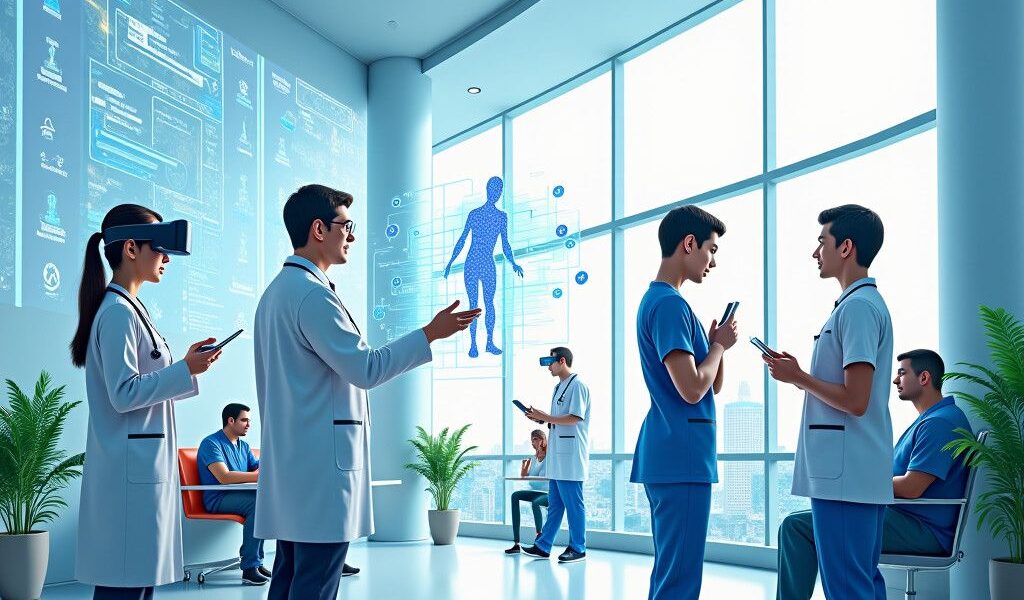CelcomDigi and Universiti Malaya Set to Transform Healthcare with Cutting-edge Technologies
In an exciting collaboration, CelcomDigi and Universiti Malaya aim to redefine the Malaysian healthcare landscape by integrating 5G, artificial intelligence (AI), and extended reality (XR) technologies. This initiative signals a major shift towards a more accessible, efficient, and personalized healthcare system, benefiting medical practitioners and patients alike.
This partnership, spanning three years, seeks to leverage emerging technologies to enhance healthcare practices in Malaysia. With the rollout of 5G capabilities, medical professionals will experience improved data transmission speeds and connectivity. This, in turn, will facilitate real-time monitoring of patients and allow for remote consultations. For example, doctors can utilize 5G-enabled devices to access critical patient information immediately during consultations, resulting in timely and informed decision-making.
AI algorithms will play a central role in streamlining healthcare processes. Imagine a scenario where AI systems analyze large volumes of patient data to identify trends in diseases, enabling healthcare providers to anticipate outbreaks and allocate resources accordingly. CelcomDigi and Universiti Malaya’s collaboration intends to develop AI applications that reduce administrative burdens on medical staff, allowing them to focus more on patient care. One notable example is the use of RUSSELL-GPT at the National University Health System, which reportedly reduced administrative tasks by 40%, a change that could be mirrored in the Malaysian context through this partnership.
Furthermore, the integration of XR technologies, including augmented reality (AR) and virtual reality (VR), is set to enhance medical training and patient education. Simulations using XR can provide students at Universiti Malaya with realistic scenarios to practice procedures without the risks associated with real-life practice. For instance, prospective surgeons could rehearse intricate surgeries in a virtual environment, developing essential skills before operating on actual patients, thereby reducing the learning curve and improving patient safety.
The combined impact of these technologies is expected to make healthcare more patient-centric. By employing data analytics powered by AI, the healthcare system can offer personalized treatment plans tailored to individual patient needs. For instance, genetic information could guide specific treatment strategies, ensuring that medications are effective and reduce the likelihood of adverse reactions. As patients increasingly demand personalized solutions, this shift is crucial to keeping the healthcare system relevant and responsive.
Additionally, ease of access remains a priority in this initiative. By facilitating telemedicine services, patients residing in remote areas of Malaysia can receive consultations without the need for long-distance travel. The integration of mobile applications, enhanced by 5G technology, will enable patients to engage with healthcare providers, schedule appointments, and manage prescriptions seamlessly. This increase in accessibility is particularly significant in rural regions, where healthcare facilities may be scarce.
The potential implications of this partnership extend beyond immediate healthcare benefits. By positioning Malaysia as a forerunner in the application of advanced technologies in healthcare, it can attract global attention and investment. Malaysia’s commitment to these innovations may also serve as a model for other countries aiming to enhance their healthcare systems through technology.
Successful implementation of this partnership will require rigorous project management and continuous evaluation. Establishing performance metrics will be essential to assess the effectiveness of the technologies introduced. Regular feedback from medical practitioners and patients will inform necessary adjustments, ensuring that the goals of improved access, efficiency, and personalization are met.
Overall, the collaboration between CelcomDigi and Universiti Malaya promises to usher in a new era in Malaysian healthcare, driven by technology. The expected advancements in 5G connectivity, AI applications, and XR simulations will not only transform medical practice but also foster a patient-centered approach that reduces inequities in healthcare access. As the healthcare landscape changes, the success of this initiative will depend on stakeholder engagement, continuous innovation, and a steadfast commitment to improving the quality of care.








